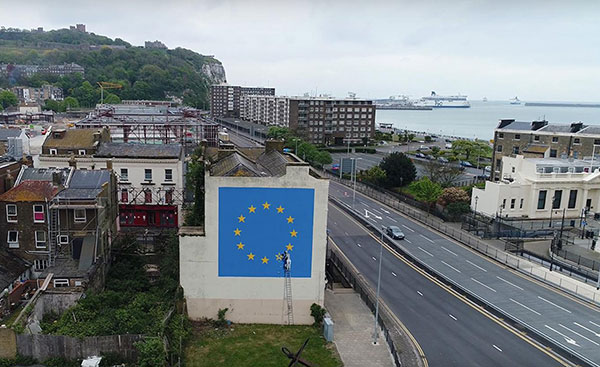Groundhog Day might be a fictional film, but three years on from the Brexit vote and the blaring lack of progress makes Bill Murray’s repetitive struggles feel all too real.
With a Brexit no-deal all but a given, disruption to supply and the possibility of food price rises are back on the horizon from early next year, while November’s presidential elections in the US have potential to shape the world on an even bigger scale.
For food and farming, the Brexit debate was brought to the fore this summer with active campaigning around the Agriculture Bill, the biggest piece of legislation for the sector in 40 years. The Bill will replace the EU’s farming subsidy scheme, moving to pay farmers for ‘public goods’ and environmental stewardship, rather than acreage of farm.
It is a monumental opportunity for positive change, and campaigners have fought for incentives on agroforestry, soil health and fair trading, all designed to speed a transition to a more sustainable farming system. Also campaigned for was an amendment that would effectively ban sales of imported food produced to lower standards than in the UK, under any new trade deals.
And it was this issue of chlorinated chicken, or more specifically, the threat of lower food standards as a result of a trade deal with the US, that caught the public’s imagination. A petition backed by Jamie Oliver was signed by over a million people who declared they do not want lower quality imported food from the US to be sold in the UK. He has since launched a new campaign enlisting other celebrities such as Joe Wicks and Hugh Fearnley-Whittingstall.
But far from accepting the huge groundswell of public opinion on the matter, the government appeared to ignore the issue altogether with ministers resolutely insisting that no trade deal will be allowed to erode British food standards.
The reason for such an impasse comes down to the belief in liberal free trade at the heart of the Conservative party, which will never prioritise regulation or constraints in trade negotiations.
Vicki Hird, campaign coordinator at sustainable food and farming alliance Sustain, says: “The problem is it’s such a big political ideology and whether we’ve got political will to truly champion high standards. The Lords will probably push for what the public wants, but the House of Commons will not.”
The Commons, of course, currently holds a Conservative majority, and without being partisan, this is the crux of the matter, says Hird, who says the alternative is “not to see trade deals as the be all and end all”.

As it stands, there are no legal constraints on negotiations for a trade deal, and no requirement or powers for MPs to scrutinise or veto aspects of it. As the first post-Brexit trade deal, signed with Japan, has shown, this effectively gives sole power to Trade Secretary Liz Truss with barely a nod to campaigners, not to mention citizens.
But the public awakening on the issue has not been totally in vain, says Hird: “The pressure has been important. Nobody was expecting the level of public opposition that we got. The NFU, Jamie Oliver, nobody was expecting it and it has made a difference.”
In the next few months, expect to see more calls to action for citizens to write to MPs to show their interest in the importance of high food standards, with the Bill set for final sign off in November.
While the Ag Bill lumbers on, a similar campaign is being waged in the parallel Trade Bill, where campaigners are seeking similar powers to veto and scrutinise proposed deals.
Food prices and no-deal
In January, the UK officially ends its transition period and will begin its new relationship with the EU as a ‘third’ country. Under no deal, imports may be subject to tariffs, at an average of eight per cent for fresh produce.
While the impact won’t be felt by most consumers and it’s likely that companies will shoulder as much as they can, once again, it’s the most vulnerable in society who will be most affected and face difficulties in accessing and affording healthy fresh food. Another issue, especially for communities in south east England, is the disruption from a backlog of freight lorries, to be catered for by extensive new lorry parks where planning regs have been helpfully waived to remove the possibility of public opposition.
The US election
In November, the US presidential elections could dramatically change the shape of global politics once again, in a year that has already gone down in history as unprecedented. Hird says: “The big unknown is Biden. Because if he wins the election, that changes everything. He cares about climate change.”
Although a Biden presidency wouldn’t alter the premise of trade negotiations, which will no doubt remain well-oiled by Tory free trade ideals, a climate-friendly US president could, still, make a world of difference.
This article was initially published in the Autumn issue of Wicked Leeks. You can read the full magazine for free on Issuu.












0 Comments